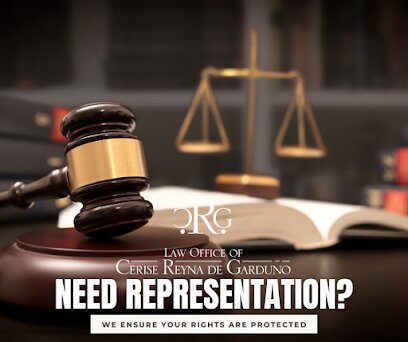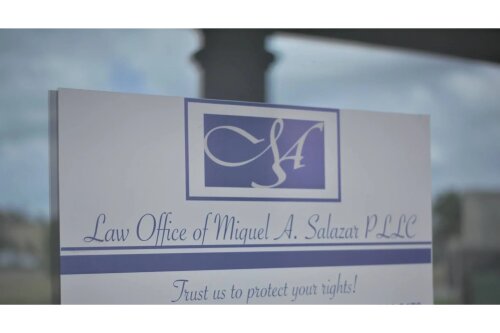Best Property Damage Lawyers in Indiana
Share your needs with us, get contacted by law firms.
Free. Takes 2 min.
Or refine your search by selecting a city:
List of the best lawyers in Indiana, United States
United States Property Damage Legal Questions answered by Lawyers
Browse our 1 legal question about Property Damage in United States and read the lawyer answers, or ask your own questions for free.
- MOVING COMPANY DAMAGED RENTAL HOME, FURNITURE AND NEW HOME
- MOVING COMPANY DAMAGED WALLS AND FURNITURE IN TWO HOUSES, THEY DIDNT USED PACKING BLANKETS OR MOVING EQUIPMENT, I FILED A DAMAGE CLAIM MID MOVE, AND RELIEVED THE WORKERS EARLY FROM SCHEDULED TIME TOOK PICS AND SUBMITTED TO THE MOVING COMPANY, NOW THE MOVING COMPANY IS INSINUATING WE CAUSED THE DAMAGE,... Read more →
-
Lawyer answer by T & A Legal
Hello, sorry about the damage to your walls and furniture. The moving company may be liable for a breach of contract or negligence. However, their liability will be determined largely by the contract between you and the moving company.Please note...
Read full answer
About Property Damage Law in Indiana, United States
Property damage law in Indiana covers the legal principles and rules that determine who is responsible for damage to personal or real property. Whether the property is a car, home, business premises, or other personal belongings, Indiana law provides avenues for property owners to seek compensation when their property is harmed through someone else's actions or negligence. Typical scenarios include auto accidents, natural disasters, vandalism, construction defects, and disputes with neighbors. The law is designed to restore the damaged party to their original position through financial compensation or, in some cases, repair or replacement of the damaged property.
Why You May Need a Lawyer
There are many situations where consulting a property damage lawyer can be beneficial in Indiana. Common reasons include:
- Disputes with insurance companies: Insurers might deny a claim or offer a settlement that does not cover your actual losses.
- Automobile accidents: When another driver causes damage to your vehicle or property, you may need help recovering full compensation.
- Storm or disaster claims: Navigating claims for fire, flood, tornado, or other disasters can be complex, especially if coverage is denied.
- Vandalism or intentional damage: Holding the responsible party accountable may require legal action, particularly if criminal charges are involved.
- Construction defects: If contractors or builders are responsible for poor workmanship leading to damages, legal expertise is vital.
- Neighbor disputes: Issues such as fallen trees or water runoff may require legal resolution.
- Commercial property damage: Business owners may face unique challenges recovering damages related to business interruption and repair costs.
Local Laws Overview
Key aspects of property damage law in Indiana include:
- Statute of Limitations: For most property damage claims, Indiana law allows you to file a lawsuit within two years of the date the damage occurred. Missing this window typically means you lose your right to recover damages.
- Comparative Fault Rule: Indiana uses a modified comparative fault system. If you share responsibility for the damage, your compensation can be reduced proportionally. If you are more than 50 percent at fault, you cannot recover damages.
- Insurance Requirements: Indiana law requires drivers to carry minimum insurance coverage for property damage liability. For homeowners, lenders may require certain levels of coverage.
- Small Claims Court: Minor property damage disputes under a certain amount (currently set at $8,000) may be filed in small claims court, which is designed for quicker and less costly resolution.
- Criminal vs. Civil Claims: Intentional damage may result in both criminal prosecution and civil liability, allowing property owners to seek restitution through the courts.
Frequently Asked Questions
What should I do immediately after my property is damaged?
Document the damage with photos or videos, make a list of damaged items, notify your insurance company, and obtain a police report if applicable.
How long do I have to file a property damage claim in Indiana?
The statute of limitations for property damage lawsuits in Indiana is generally two years from the date the damage occurred.
Can I sue my neighbor if their tree damages my property?
Yes, you may have a claim if you can show the neighbor was negligent in maintaining the tree, or had notice it was hazardous.
How does Indiana determine fault in property damage cases?
Indiana applies modified comparative fault, meaning each party’s share of fault is determined, and your compensation can be reduced if you are partially at fault.
What if my insurance company denies my property damage claim?
You have the right to appeal the denial, negotiate, or seek legal assistance to challenge the insurer’s decision.
Are there limits on how much I can recover in a property damage lawsuit?
There are no explicit general limits for most property damage cases, but some exceptions apply, such as claims against the government, which are capped.
Can I get punitive damages for property damage in Indiana?
Punitive damages are rare and typically only available when the person who caused the damage acted in a deliberately harmful or fraudulent manner.
Who pays for damage from severe weather events?
Typically, your own insurance policy covers such events, though disputes with insurers can arise regarding coverage and payouts.
Do I need a lawyer for a small property damage claim?
Not always, especially if the claim amount is low, but a lawyer can be helpful if the situation is complex or negotiations with insurers or other parties stall.
What is the process for making a property damage insurance claim?
Notify your insurer promptly, submit a proof of loss with documentation, cooperate with any investigation, and negotiate settlement if necessary.
Additional Resources
If you need more information or assistance regarding property damage in Indiana, consider contacting or visiting the following resources:
- Indiana Department of Insurance: Helps consumers with insurance questions and complaints.
- Indiana Legal Services: Offers free or low-cost legal assistance to eligible residents.
- Local Small Claims Courts: Handles minor property damage disputes efficiently.
- Indiana State Bar Association: Provides lawyer referral services and legal information.
- Consumer Protection Division, Indiana Attorney General: Addresses issues involving scams or unfair business practices.
Next Steps
If you are facing a property damage issue in Indiana and think you may need legal help:
- Gather all relevant documents, such as photographs, repair estimates, insurance information, and any correspondence related to the incident.
- Keep a detailed timeline of events and copies of all communications with involved parties.
- Contact your insurance provider and follow the required procedures for making a claim.
- If your claim is denied or if you face resistance from another party, consider consulting a qualified Indiana property damage attorney to understand your rights and options.
- If you need immediate guidance and cannot afford an attorney, reach out to legal aid organizations or visit small claims court for claims involving lower amounts.
Proper legal guidance can increase your chances of recovering damages and help ensure your rights are protected under Indiana law.
Lawzana helps you find the best lawyers and law firms in Indiana through a curated and pre-screened list of qualified legal professionals. Our platform offers rankings and detailed profiles of attorneys and law firms, allowing you to compare based on practice areas, including Property Damage, experience, and client feedback.
Each profile includes a description of the firm's areas of practice, client reviews, team members and partners, year of establishment, spoken languages, office locations, contact information, social media presence, and any published articles or resources. Most firms on our platform speak English and are experienced in both local and international legal matters.
Get a quote from top-rated law firms in Indiana, United States — quickly, securely, and without unnecessary hassle.
Disclaimer:
The information provided on this page is for general informational purposes only and does not constitute legal advice. While we strive to ensure the accuracy and relevance of the content, legal information may change over time, and interpretations of the law can vary. You should always consult with a qualified legal professional for advice specific to your situation.
We disclaim all liability for actions taken or not taken based on the content of this page. If you believe any information is incorrect or outdated, please contact us, and we will review and update it where appropriate.
Browse property damage law firms by city in Indiana
Refine your search by selecting a city.











